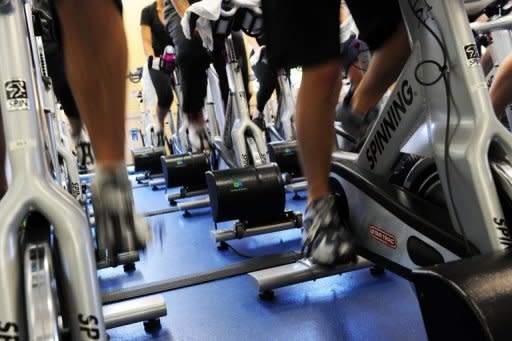Tips for fitness and health during Ramadan

With the Muslim fasting month coming up, many of our Muslim clients in our personal training and fitness bootcamps ask us what they should do during this month to maintain the progress they have made in strength and fitness.
Here are some of the questions I have been asked and how I answered them.
Q: When is the best time to exercise?
A: Actually, I would try to exercise first thing in the morning BEFORE breakfast. I know this is tough to do for many people, but if its possible this is ideal. Get up, have a small, protein based meal like two eggs, and then go train. Once training is finished, get your large breakfast before sunrise.
If that is not possible, then evening training before the evening meal is the next best option. The reason for this is that you will actually be more energetic before meals than after. Also, if you eat a big meal and then train, the fat-burning effects of exercise are reduced.
The breakfast meals, when taken post training, are timed correctly. Large meals post training are actually good for you.
Q: What sort of foods should I be eating?
A: In general, you want to eat stuff that digests slowly, that allows the food to sustain you for longer and keeps your blood sugar stable for longer periods. So, what type of food is this? It means you need to eat food that is high in fiber, higher in protein and high in fat.
Yes, I said it.
Fat.
By this I don't mean deep-fried, diabetes-causing death fats. I mean healthy fats like fish oils, butter and olive oil, coconut oil, egg yolks and those found in meat.
I.e. natural sources of fat. These fats have many benefits and will give you long-term sustained energy throughout the day when you won't be eating.
Protein aids in the feeling of "fullness", and fiber from natural sources like veggies and fruits also slows down digesting, keeping your energy stable through the day.
A suitable meal could look like this:
A steak, eggs, and a handful of almonds, along with an apple and cucumbers.
If you eat a lot of refined foods like potato chips or white rice, you will feel full for a while, but will quickly get hungry. Fat and protein on the other hand, take HOURS to digest and will keep you energetic all day.
Q: There are a lot of sweets and goodies at the feast times! Should I be eating theses?
A: Unfortunately, sweets are not good for anybody! They mess up energy production and make you gain weight. The item that I suggest is the traditional dates. A few of these (not a bucket!!) are fine and way better than a dessert. The reason is that natural sources (like dates) come with fiber and this slows the sugar release of the food.
Q: What supplements can help me during Ramadan?
A: Here are some suggested supplements:
Digestive aids like digestive enzymes and pro-biotics to maximise the absorbtion of your food
Magnesium and glycine to aid relaxation and sleep
Carnitine and zinc to aid morning energy
Q: What sort of training should I do?
A: When you are in a fasted state, your main goal is to maintain lean muscle so your metabolism and immune system do not get weaker. Having lean muscle aids both these functions.
The best form of training is challenging (for your fitness level) resistance training because it accomplishes these goals. Ideally, you are on a proper training program! But even if you are not a member of a gym, get in some push-ups, squats and chin-ups at least three times per week.
There we have it, tips to help my friends and clients have a strong and healthy fasting month.
Coach Jonathan Wong is a Singapore personal trainer and performance expert. He is also a fitness author and a member of Singapore Men's Health Advisory Panel.
For the best personal training and fitness boot camp program in Singapore visit www.coachjon.com


